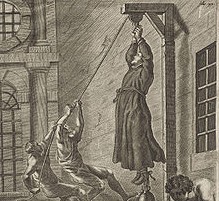I seemed to have lost all strength and courage, and simply hated the thought of the life. Then I ran to You in the Tabernacle, threw myself before You and begged You to do all since I could do nothing. In a moment all was sweet and easy.
COMMENT: Courage, more commonly referred to as fortitude, is one of the cardinal virtues. It is impossible to live a holy life without it. In fact, it is also probably impossible to live a happy life in the purely worldly sense without it. As St Teresa of Avila, herself no stranger to this virtue, once said:
To have courage for whatever comes in life – everything lies in that.
We see many examples of courage in the life of Fr Doyle. Most obviously, his simply astounding courage during the war comes immediately to mind. If that doesn’t qualify as “heroic virtue” I don’t know what does! But Fr Doyle exhibited courage and fortitude throughout his life. Even as a student before ordination he had to confront persistent illness and fought long and hard to succeed in study. Here is the testimony of a fellow Jesuit who lived with him before he was ordained:
Viewing his character as a whole, it seems to me that the fundamental quality in it was courage — courage of a fine and generous type. When confronted with difficulties, with danger or labour or pain, instead of hesitating or weakly compromising, he was rather braced to a new and more intense resolve to see the matter out. Give in, he would not. It was this courage, supported, no doubt, by a natural liveliness of disposition, that enabled him to preserve through life his gaiety of heart and to face his troubles as they came with a smiling countenance; it was this courage, too, that steeled him to hold fast to his purpose no matter what difficulties or obstacles might arise.
This courage was not necessarily innate within Fr Doyle; he continuously prayed for this gift. As he says in one part of his diary:
With my arms round the cross, I begged Jesus to give me His courage and strength to do what He asks from me.
All saints demonstrated courage to a heroic degree, but in some cases this virtue seems to shine out with special grandeur. Today the Church celebrates two such men.

St Nicholas Owen was a Jesuit lay brother who died in 1606. He was a carpenter by trade, and it was he who perfected the art of constructing priest-holes in Elizabethan England. His work in building protest holes was fascinating; some of them were only discovered centuries later, such was his creativity and skill in constructing them. He travelled in disguise and worked quietly at night while the household was asleep, for it was dangerous to allow others to know the nature of his work. His work was so exceptional that he undoubtedly saved the lives of many priests. As Fr John Gerard, the remarkable Jesuit missionary of that era who chronicled his exploits in a fascinating memoir noted:
I verily think no man can be said to have done more good of all those who laboured in the English vineyard. He was the immediate occasion of saving the lives of many hundreds of persons, both ecclesiastical and secular.
This, of course, made St Nicholas a prime target for capture. When he was himself arrested, he was subjected to the most horrific tortures in order to make him reveal the secrets of his hiding holes. Remarkably, he withstood all attempts to break him, and he died while being tortured on the rack in the Tower of London. He was literally torn asunder and died on rack, and the case was apparently something of a scandal at the time given the ferocity of the torture he was subjected to. The authorities even went as far as to allege that he committed suicide, such was their desire to cover up their crime of murdering him on the rack. Yet he revealed no secrets, preferring agonising death rather than reveal his secrets and endanger the Catholic mission in Elizabethan England. He was a true hero and a man of courage.

We also celebrate today the feast of Blessed Clemens August von Galen, the Bishop of Münster in Germany from 1933-1946. He was a staunch opponent of both the Communists and Nazis, and, despite threats and violence, he preached fearlessly against the Nazi death-culture and in defence of the Church. He is popularly known as the Lion of Münster in recognition of his courage. More can be read about him here: http://www.christendom-awake.org/pages/mcgovern/vongalb.html He is also the subject of an interesting new biography – ore can be read about that here: https://www.firstthings.com/web-exclusives/2017/03/the-bishop-and-the-nazis
Fr Doyle showed his courage in the First World War, Blessed Clemens demonstrated his in the Second World War and St Nicholas Owen stood firm during the Elizabethan persecution. Most people reading this site do not live in the midst of such dramatic circumstances, and for that perhaps we should be thankful. But we are still called to live with heroic courage in our ordinary circumstances. It is interesting to note that all three exhibited their greatest courage in fulfilling their vocations – Fr Doyle as a military chaplain; St Nicholas Owen as a carpenter and Blessed Clemens as a bishop fearlessly proclaiming the truth, even though it was politically unpopular.
Daily life will also provide many opportunities for us to demonstrate our own fortitude, most often in overcoming our own personal defects and weaknesses. As Fr Doyle once noted in a letter:
For your consolation remember that everyone I have ever met found the struggle for perfection hard because most of the work is done in the dark. It is a question of faith and courage, going along bravely day after day.

These are such beautiful quotes! Thank you!